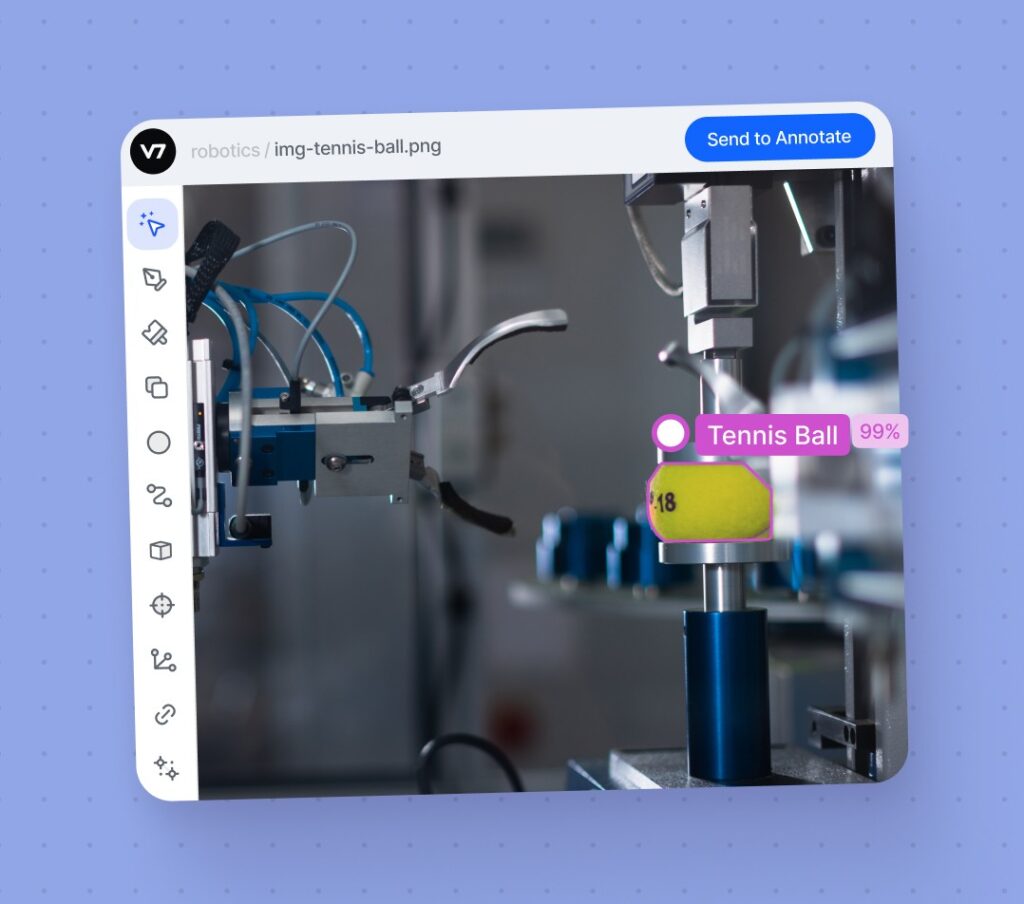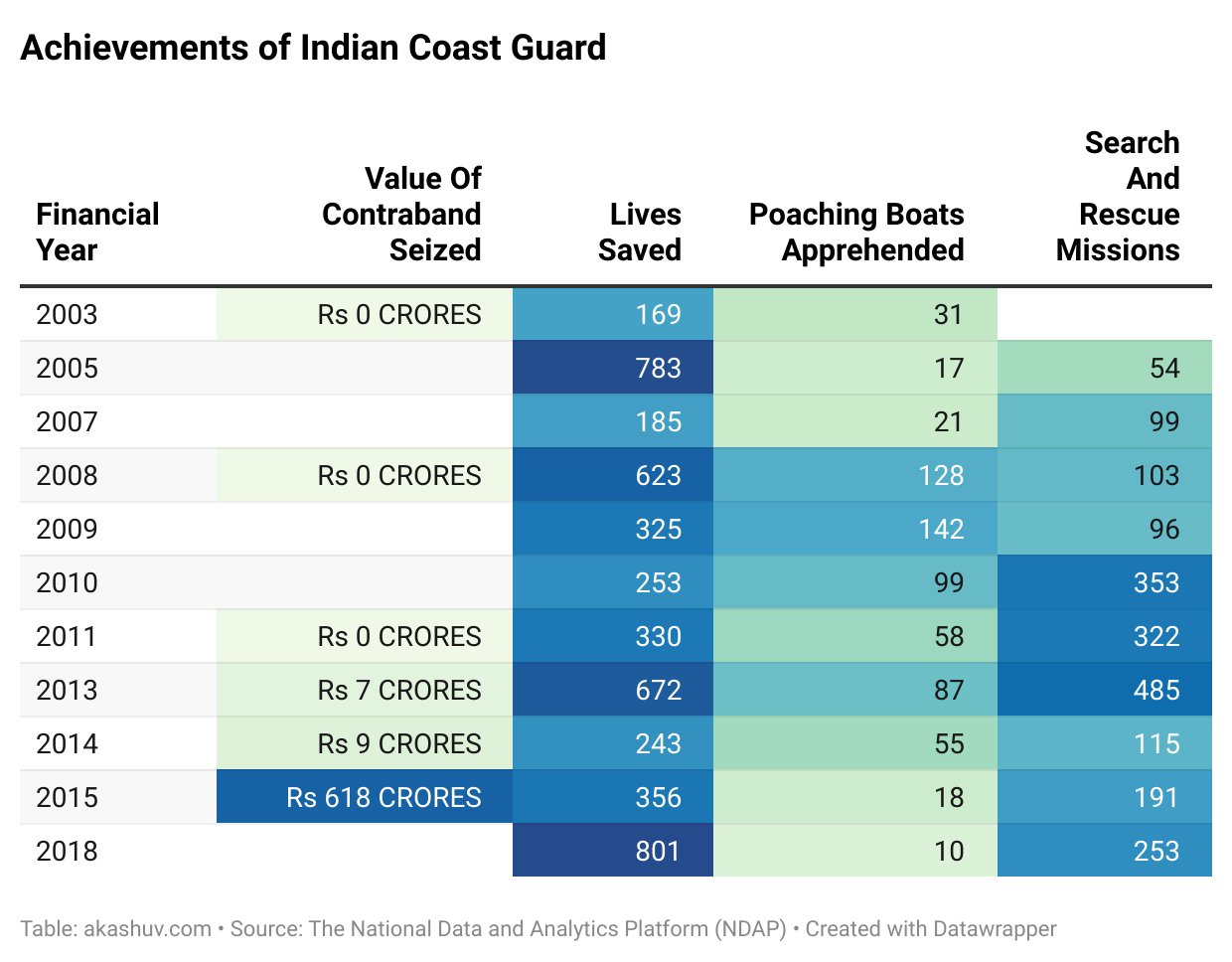Ginger Tea: A Natural Remedy for Period Bloating – An Indian Youth’s Guide
Menstrual cycles can be challenging, with cramps, mood swings, and the infamous bloating making it hard to function at your best.
If you’re an Indian youth juggling studies, work, and social commitments, the added discomfort of period bloating can feel like an unwelcome guest. But what if the solution lies in your kitchen?
According to age-old wisdom—something our mothers have always known—ginger tea is a simple, effective remedy for easing period bloating.
This blog delves into why ginger tea is a go-to solution for menstrual bloating and how it aligns with the lifestyle of Indian youth. Let’s explore how this golden elixir can make your period days a little easier.
Understanding Period Bloating
Period bloating occurs due to hormonal fluctuations, particularly increased levels of estrogen and progesterone. These hormones cause water retention, which leads to a feeling of puffiness or tightness, especially around the abdomen.
While bloating is a normal part of the menstrual cycle, it can be uncomfortable and frustrating.
Why Do Indian Youth Face More Challenges?
As a young Indian, you may already have a hectic lifestyle, balancing academics, work, or other responsibilities. Add to this the cultural expectations and dietary habits that sometimes lean heavily on processed foods, salt, or caffeine—all of which can exacerbate bloating.
Furthermore, in many Indian households, discussing menstruation with male family members is still considered taboo. Some deeply ingrained cultural practices also restrict women during their menstrual cycle, such as not allowing them to enter the kitchen or sleep in a proper bed.
These emotionally distressing practices can, in turn, cause stress, leading to the release of cortisol, a stress hormone that worsens physical discomfort, including bloating.
This is where natural remedies like ginger tea can make a significant difference.
Why Ginger Tea Works Wonders for Period Bloating
1. Anti-inflammatory Properties
Ginger contains powerful anti-inflammatory compounds called gingerols and shogaols. These help reduce the inflammation in the gut, relieving bloating and soothing abdominal discomfort.
2. Promotes Digestive Health
Bloating often stems from digestive issues like slow metabolism or gas buildup. Ginger tea stimulates the digestive enzymes, aiding in faster digestion and reducing gas.
3. Diuretic Effect
Ginger tea has mild diuretic properties that help flush out excess water from the body, reducing water retention and puffiness.
4. Hormonal Balance
Ginger may also play a role in regulating hormones, helping reduce the severity of period symptoms, including bloating, cramps, and mood swings.
5. Warmth and Comfort
A hot cup of ginger tea provides warmth and relaxation, which can ease period discomfort and elevate your mood during challenging days.
Ginger Tea for Period Bloating: Step-by-Step Approach with External Resources
Here’s how you can implement ginger tea as a remedy for period bloating, broken down into actionable steps. Additionally, external links provide deeper insights and credibility.
Step 1: Understand the Science Behind Ginger and Menstrual Health
Before diving into remedies, it’s helpful to understand why ginger is effective for bloating and menstrual discomfort. Research confirms its anti-inflammatory, digestive, and hormone-regulating properties.
External Resources:
Step 2: Gather Ingredients
Head to your kitchen or a local grocery store to gather the following ingredients:
- Fresh ginger root
- Water
- Optional: honey, lemon, or additional spices like cardamom
External Resources:
- BBC Good Food: Why Fresh Ginger Is Better Than Powder
- Times of India: Ginger Benefits in Indian Cooking
Step 3: Prepare Ginger Tea
Follow this quick recipe:
- Boil 2 cups of water in a pan.
- Grate or thinly slice 1-2 inches of fresh ginger.
- Add the ginger to the boiling water and let it simmer for 5-7 minutes.
- Strain the tea into a cup.
- Add a teaspoon of honey or a squeeze of lemon for extra flavor.
External Resources:
Step 4: Drink Responsibly
Consume ginger tea once or twice a day during your menstrual cycle. Avoid drinking excessive amounts, as it can lead to acidity or heartburn in some individuals.
External Resources:
Step 5: Pair Ginger Tea with Lifestyle Adjustments
For maximum relief, complement ginger tea with:
- Hydration: Drink at least 2-3 liters of water daily.
- Diet: Include fiber-rich foods and avoid salty snacks.
- Light Exercise: Try yoga or gentle stretching exercises.
External Resources:
Step 6: Monitor the Results
Keep track of how ginger tea affects your period symptoms over a few cycles. If the bloating significantly reduces, incorporate it into your routine. However, if symptoms persist, consult a healthcare provider.
External Resources:
- WebMD: When to See a Doctor for Menstrual Symptoms
- National Library of Medicine: Gut Health and Hormonal Cycles

Quick Overview of the Steps to Use Ginger Tea for Period Bloating
- Understand the Science Behind Ginger
Ginger’s anti-inflammatory and digestive properties make it effective for easing period bloating. Its ability to regulate hormones also helps reduce discomfort during your menstrual cycle. - Gather the Ingredients
You’ll need fresh ginger root, water, and optional ingredients like honey, lemon, or cardamom for added flavor. - Prepare Ginger Tea
Boil 2 cups of water, add grated or sliced ginger, and let it simmer for 5-7 minutes. Strain into a cup and add honey or lemon if desired. - Drink Responsibly
Drink ginger tea once or twice a day during your period, but avoid overconsumption to prevent acidity or heartburn. - Pair with Lifestyle Adjustments
Stay hydrated, eat fiber-rich foods, and engage in light exercise like yoga to enhance the effectiveness of ginger tea in reducing bloating. - Monitor the Results
Track how your symptoms change over a few cycles. If bloating decreases, continue using ginger tea. If symptoms persist, consult a healthcare provider.
By following these simple steps, you can naturally manage period bloating and stay connected to time-tested, culturally rooted remedies.
When and How Often Should You Drink Ginger Tea?
For best results, drink ginger tea:
- 1-2 times a day during your menstrual cycle, especially when bloating is at its peak.
- First thing in the morning on an empty stomach or in the evening for a calming effect.
Avoid overconsumption, as too much ginger can sometimes cause heartburn or acidity.
The Cultural Connection: Wisdom Passed Down
In Indian households, natural remedies like ginger tea have been trusted for generations. Whether it’s curing a sore throat or soothing an upset stomach, ginger holds a revered place in Ayurvedic medicine. Our mothers and grandmothers often know the value of these age-old practices, even when modern science is just catching up.
As Indian youth, incorporating these traditional remedies into your lifestyle allows you to stay connected to your roots while addressing modern-day health challenges.
Why Ginger Tea Fits the Lifestyle of Indian Youth
- Quick and Easy to Prepare: With minimal ingredients and effort, ginger tea can be made in minutes, making it perfect for busy students or young professionals.
- Affordable and Accessible: Ginger is readily available in most Indian kitchens, making this remedy cost-effective and convenient.
- Customizable Flavor: You can experiment with add-ons like cardamom, cinnamon, or tulsi to suit your taste preferences.
- Holistic Wellness: Beyond bloating, ginger tea helps with cramps, nausea, and even stress—common challenges faced by Indian youth.
Additional Tips to Combat Period Bloating
While ginger tea is an excellent remedy, combining it with a healthy lifestyle can enhance its effects:
- Stay Hydrated: Drink plenty of water to prevent water retention.
- Reduce Salt Intake: Avoid salty snacks, which can worsen bloating.
- Eat Fiber-Rich Foods: Include fruits, vegetables, and whole grains in your diet to promote digestion.
- Exercise Gently: Yoga and light stretches can help alleviate bloating and cramps.
- Limit Caffeine: Replace coffee with herbal teas like ginger, chamomile, or peppermint during your period.
Conclusion: A Cup of Comfort
Ginger tea is more than just a beverage—it’s a cup of comfort, offering relief from period bloating and other menstrual woes. As an Indian youth navigating the complexities of modern life, embracing this traditional remedy can be a game-changer for your overall well-being.
The next time your period brings along bloating, listen to your mom’s advice and brew yourself a warm, soothing cup of ginger tea. It’s a small act of self-care that can make a big difference.
So, why wait? Give ginger tea a try and experience its magical benefits for yourself!
Disclaimer:
The information provided in this blog is intended for general informational purposes only. While ginger tea has been traditionally used in Ayurvedic medicine and has some proven health benefits, it should not be considered a substitute for professional medical advice, diagnosis, or treatment. Always consult with a healthcare provider before making any significant changes to your diet, especially if you have underlying health conditions or are taking medications.
Individual results may vary, and excessive consumption of ginger can lead to side effects such as heartburn or gastrointestinal discomfort. Please consume ginger tea in moderation.
The external resources linked in this article are for reference purposes and do not necessarily reflect the views or recommendations of the author.
-

The AI Robotics Revolution: Transforming Industries and Reshaping Our World

Robotics and artificial intelligence have independently reshaped our world, but their fusion has proven truly revolutionary. The marriage of these technologies has unleashed a wave of innovation, automating tasks, boosting productivity, and creating entirely new possibilities across numerous sectors. This convergence hasn’t just been incremental; it represents a paradigm shift, pushing the boundaries of what’s achievable in manufacturing, healthcare, agriculture, and beyond.
The explosive growth of the AI robotics market underscores this transformation. Valued at US$6.9 billion in 2021, it’s projected to reach a staggering US$35.5 billion by 2026, boasting a compound annual growth rate (CAGR) of 38.6%. This phenomenal growth isn’t just a technological trend; it’s a reflection of the increasing demand for automation and efficiency across industries grappling with labor shortages and the need for enhanced precision.
The COVID-19 pandemic accelerated this adoption. Lockdowns and remote work mandates created a pressing need for solutions enabling remote operation and control of complex machinery. Intelligent robots, programmable and manageable from anywhere, emerged as a crucial answer, proving their versatility and resilience in the face of unforeseen challenges.
The Ubiquitous Presence of AI Robots:
Today, AI robots are far from a futuristic fantasy. They are actively transforming operations in a vast array of sectors, from tech giants to small businesses. They greet customers in shops, serve meals in restaurants, harvest crops in vast fields, and lift heavy loads in factories. Their presence is not simply replacing human workers; it’s augmenting human capabilities and creating safer, more efficient work environments. In industrial settings, AI-enabled robots operate safely alongside human workers, performing intricate tasks such as cutting, grinding, welding, and inspection autonomously. Research even indicates that a moderate increase in robot density (1.34 robots per 1000 workers) leads to a significant reduction in workplace injuries (approximately 1.2 injuries per worker).
AI Robots: Industry-Specific Applications:
Let’s delve into specific industry applications showcasing the breadth and depth of AI robotics’ impact:
1. Agriculture: Revolutionizing Farming Practices:
The agricultural sector is undergoing a dramatic transformation thanks to AI-powered robots. Farmers are leveraging these technologies to boost efficiency, optimize yields, and reduce manual labor. AI assists in understanding weather patterns, advising on fertilizer and water usage, and predicting optimal harvest times. The core applications include:
- Robot Picking: Harvesting fruits and vegetables is a labor-intensive process. AI-powered robots, utilizing machine learning and computer vision, identify ripe produce and delicately pick it, minimizing damage. Examples include Shadow Robot’s Dexterous Hand and Tevel’s AI-powered drones, already deployed across farms in Israel, the USA, and Italy, significantly reducing labor hours and increasing efficiency.
- Crop Harvesting/Weeding: AI algorithms determine crop ripeness, enabling precise harvesting. The Agrobot E-Series and the Cambridge University-developed Vegebot showcase this capability, autonomously picking berries and harvesting lettuce, respectively. Weed control, traditionally a time-consuming task, is automated by robots like Carbon Robotics’ LaserWeeder, which uses computer vision and thermal energy to eliminate weeds with remarkable accuracy, resulting in up to 80% cost savings.
2. Manufacturing: Enhancing Precision and Safety:
Robots have been a staple in manufacturing for decades, but AI is elevating their capabilities. Intelligent robots now perform real-time assessments and adapt to dynamic situations.
- Damage Control and Quick Maintenance: Robots equipped with computer vision inspect machinery and infrastructure for damage, significantly reducing inspection time. Companies like Abyss Solutions utilize this technology for infrastructure inspections, cutting down inspection times from months to weeks. The use of robust annotation tools like V7 further enhances the accuracy of these inspection systems.
- Quality Inspection: AI robots meticulously inspect assembly lines for defects, surpassing human capabilities in accuracy and consistency. Companies such as Naska.AI provide AI solutions for construction site inspections, ensuring structural integrity and progress tracking. Novacura’s Flow solution uses specialized cameras and AI to monitor assembly lines, identifying defects and automatically triggering corrective actions.
- Automatic Control: Integrated control solutions provide a single point of access for process monitoring. GE’s Brilliant Manufacturing Suite exemplifies this, integrating design, manufacturing, and supply chain procedures across its global network, creating an intelligent and scalable system.
- Nuclear Waste Management: The hazardous task of nuclear waste cleanup is made safer and more efficient with AI-powered robots. The Manufacturing Technology Centre’s project, leveraging V7’s platform for training robots to identify and handle radioactive materials, showcases the potential of AI in managing hazardous environments.
3. Healthcare: Enhancing Patient Care and Surgical Precision:
AI robotics is transforming healthcare, from administrative tasks to complex surgical procedures.
- Disinfection and Sterilization: Robots like Tru-D autonomously disinfect hospital rooms using UV light, reducing the risk of infections and improving hygiene.
- Patient Assistance: Robots such as Diligent Robotics’ Moxi assist clinical staff with non-patient-facing tasks, freeing up human resources for direct patient care. Futronics’ AI ecosystem monitors patient vitals, manages medication, and even assists with rehabilitation.
- Surgical Robotics: Surgical robots like Stryker’s Mako assist surgeons in hip and knee replacements, using 3D imaging and robotic arms to improve precision and patient outcomes.
4. Transportation: The Self-Driving Revolution:
Self-driving vehicles represent a landmark application of AI robotics. Companies like Cruise leverage AI and robotics, incorporating 360 cameras and sophisticated software, creating autonomous vehicles already operating in several US cities. Perceptive Automata is pushing the boundaries further, focusing on predicting pedestrian behavior to improve safety and navigation in crowded environments.
5. Aerospace and Space Exploration:
AI robots are playing a crucial role in space exploration. NASA’s Perseverance rover uses AI to navigate the Martian surface, mapping terrain and identifying points of scientific interest. Airbus’ CIMON-2 serves as a robotic assistant for astronauts, performing basic tasks and providing support in space.
Challenges and the Future of AI Robotics:
While the benefits of AI robotics are undeniable, concerns remain, particularly regarding job displacement. However, the focus should be on leveraging this technology to augment human capabilities, creating new roles and opportunities rather than solely replacing existing ones. The future of AI robotics lies in continued innovation, focusing on safety, ethical considerations, and seamless integration into existing workflows. As AI algorithms become more sophisticated and robots more adaptable, the potential applications of this technology will only continue to expand, transforming industries and reshaping the future in ways we can only begin to imagine.
Source
-

How Is a BBA Different from Other Courses? A Guide for Students Preparing for College
How Is a BBA Different from Other Courses? A Guide for Students Preparing for College
Introduction: Why Choosing the Right Course Matters
As high school graduation approaches, the question of what to study in college becomes a critical decision. For students intrigued by business, management, or entrepreneurship, a Bachelor of Business Administration (BBA) often comes to mind. But what sets a BBA apart from other undergraduate programs?
In this blog, we’ll explore the unique aspects of a BBA program, how it compares to traditional options like BA, BSc, or BCom, and why it might be the perfect fit for your career ambitions.
What Is a BBA?
A Bachelor of Business Administration is a professional undergraduate degree focused on equipping students with foundational knowledge in business management, leadership, and strategy. It combines theoretical learning with practical applications, preparing students to enter the business world with confidence.
Key Features of a BBA:
- Specialized Focus: Emphasis on business and management disciplines.
- Skill-Oriented Learning: Hands-on exposure to business tools and scenarios.
- Industry-Relevant Curriculum: Designed to meet the demands of modern workplaces.
How Does a BBA Compare to Other Courses?
BBA vs. BCom (Bachelor of Commerce)
- Curriculum:
BCom focuses on accounting, finance, and economics, while a BBA emphasizes managerial and leadership aspects, including marketing, HR, and operations. - Career Pathways:
BCom graduates often pursue roles in accounting or finance, while BBA graduates are equipped for managerial positions, entrepreneurship, or further studies like an MBA. - Approach:
BBA is more practical and industry-focused, whereas BCom leans towards theoretical learning.
BBA vs. BA (Bachelor of Arts)
- Curriculum:
A BA offers broad knowledge in liberal arts or social sciences. A BBA, on the other hand, has a structured approach to business and management. - Career Pathways:
BA graduates often enter creative fields, while BBA students are groomed for business-centric roles. - Skill Development:
While a BA hones critical thinking and communication skills, a BBA emphasizes decision-making, strategic planning, and leadership.
BBA vs. BSc (Bachelor of Science)
- Curriculum:
A BSc is heavily focused on scientific and technical disciplines, while a BBA targets business strategy and management. - Career Pathways:
BSc graduates often go into research, technology, or specialized sciences, whereas BBA graduates pursue careers in management, sales, or entrepreneurship. - Nature of Learning:
BBA involves case studies, internships, and group projects, making it highly interactive compared to the theoretical and experimental nature of a BSc.

Why Choose a BBA?
1. Early Exposure to Business Concepts
A BBA introduces you to business principles right from the start. You’ll learn about topics like marketing, finance, human resources, and operations—all in your undergraduate years.
2. Career Readiness
Unlike many general degrees, a BBA prepares you for the workforce with practical skills such as negotiation, teamwork, and leadership.
3. Gateway to an MBA
If you aspire to pursue an MBA in the future, a BBA serves as a strong foundation, giving you an edge in admissions and coursework.
4. Networking Opportunities
Many BBA programs involve internships, seminars, and industry projects that help you build a professional network early in your career.
5. Versatility
The skills acquired in a BBA are transferable across industries, making it a versatile degree with diverse career prospects.
Is BBA the Right Choice for You?
Choosing a course depends on your interests and career aspirations. Here are a few questions to help you decide:
- Do you enjoy problem-solving, leadership, and teamwork?
- Are you interested in business, startups, or corporate environments?
- Do you want a practical, application-oriented degree?
If you answered “yes” to these questions, a BBA might be the ideal path for you.
Career Opportunities After a BBA
A BBA degree opens the door to various career paths, such as:
- Management Trainee: Entry-level roles in business operations or strategy.
- Marketing Executive: Assisting in advertising and promotional campaigns.
- HR Associate: Managing recruitment, payroll, and employee engagement.
- Entrepreneur: Starting and managing your own business.
- Further Studies: Pursuing an MBA or specialized certifications.
Conclusion: Make an Informed Choice
Deciding on a college course is a significant milestone in your academic journey. A BBA offers a unique blend of theory and practice, setting it apart from other undergraduate programs. Whether you aspire to lead a multinational corporation, start your own business, or simply explore the world of business, a BBA can be your launchpad to success.
Pro Tip: Always align your career choices with your passions and goals. Research well, and don’t hesitate to consult mentors or career counselors.
Reference:
Explore MBA Pathway Opportunities
Current Industry Trends in Business Management
Skill Development Resources for BBA Students
artifical intelligence
learn gen ai , learn ai , coding free -

10 Reasons Why Choosing a BBA Degree Can Kickstart Your Business Career
10 Reasons Why Choosing a BBA Degree Can Kickstart Your Business Career
In today’s competitive world, securing a successful career in business starts with the right foundation.
One of the most effective ways to build that foundation is by earning a Bachelor of Business Administration (BBA) degree.
Whether you’re aiming for a managerial role, dreaming of starting your own business, or seeking to enter the corporate world, a BBA degree is the perfect launchpad for your future.
In this article, we explore 10 reasons why choosing a BBA degree is a great decision for anyone looking to kick start their business career.
- Build a Strong Foundation in Business Principles
A BBA degree provides a comprehensive understanding of core business principles. From marketing and finance to operations and human resources, students learn the fundamental skills needed to navigate the business world. This strong foundation ensures that no matter what career path you choose, you’ll have the knowledge and tools to succeed. - Develop Essential Management Skills
One of the primary reasons to pursue a BBA is the opportunity to hone your management and leadership skills. As businesses grow, skilled managers are needed to oversee operations and teams - A BBA degree offers extensive training in areas such as project management, leadership, and strategic thinking—skills that are vital for managing people and resources effectively in any business setting.
- Increase Your Marketability in the Job Market
With a BBA degree, you significantly increase your marketability to potential employers. In today’s job market, having a business-related degree is often a requirement for many entry-level positions. Not only does it open doors to various roles in industries such as marketing, finance, and operations, but it also demonstrates to employers that you have the foundational skills needed to succeed in a business environment. - Expand Your Professional Network
A BBA program provides numerous networking opportunities. From interacting with professors and peers to attending industry events and internships, a BBA allows you to build a strong professional network that can prove invaluable throughout your career. Networking helps open doors to job opportunities, mentorship, and industry insights that will benefit you long after graduation. - Gain Exposure to Real-World Business Scenarios
Many BBA programs incorporate internships, case studies, and practical assignments into the curriculum. These experiences allow students to apply what they’ve learned in a real-world context, preparing them for the challenges they’ll face in their careers. The hands-on experience gained during a BBA program is crucial for understanding how businesses operate on a day-to-day basis. - Learn Versatile, Transferable Skills
The skills developed in a BBA program are not only applicable in business but are also transferable across a wide range of industries. Critical thinking, problem-solving, communication, and analytical skills are all integral parts of the curriculum. Whether you decide to work in the corporate world, start your own business, or switch industries, a BBA gives you the versatility to adapt to various career opportunities. - Prepare for Graduate Studies or Specialization
A BBA degree can be a stepping stone for further academic pursuits. If you decide to specialize in a particular area of business, such as marketing, finance, or entrepreneurship, a BBA provides the necessary background to pursue a master’s degree like an MBA or other specialized certifications. Many BBA graduates go on to earn higher degrees to further enhance their expertise and career prospects. - Learn How to Manage Finances and Budgets
Financial management is a key component of any business. A BBA program teaches you how to manage budgets, understand financial statements, and make informed financial decisions. These skills are essential not just for running a business but also for making personal financial decisions, making a BBA degree valuable both in and out of the workplace. - Open Doors to Entrepreneurship Opportunities
For those interested in starting their own business, a BBA is an excellent choice. The program covers the fundamentals of business planning, management, finance, and marketing—all of which are crucial for building and growing a successful business. Whether you want to open a small startup or pursue a larger venture, a BBA gives you the knowledge and skills to start your entrepreneurial journey with confidence. - Boost Your Confidence in Business Decision-Making
Finally, a BBA degree helps boost your confidence in making business decisions. With the theoretical knowledge and practical skills gained throughout the program, you’ll be well-equipped to make strategic decisions, solve business problems, and contribute meaningfully to the organizations you work for. This confidence will set you apart as a capable and reliable professional in your business career.
Conclusion
In conclusion, a BBA degree offers a wide range of benefits that can significantly impact your career trajectory. From building a strong business foundation to enhancing your marketability and networking opportunities, this degree provides the tools you need to succeed in the competitive business world. Whether you’re interested in working for a large corporation, starting your own business, or continuing your studies, a BBA degree is the perfect first step in your journey.Ready to take the next step in your business career? Explore BBA programs today and unlock your potential for a successful future!
Final Thoughts:
As the saying goes, “The best time to plant a tree was 20 years ago. The second best time is now.” Starting your business career with a BBA degree could be the first step toward your dream job.
Reference:
- What is a BBA Degree? – Overview of the BBA degree, its purpose, and what students can expect.
- BBA vs. BCom: Key Differences Explained – A detailed comparison between BBA and BCom degrees, highlighting key differences.
- MBA after BBA: What You Need to Know – Explains why the BBA is often seen as a precursor to an MBA and how it sets the stage for graduate-level business education.
- Entrepreneurship Skills Gained in BBA Programs – Explains how BBA programs focus on developing entrepreneurship skills and the advantages of pursuing entrepreneurship in business education.
- Best Specializations in a BBA Program – Covers the various specializations available within the BBA program, helping students understand the different career paths they can take.
- Importance of Internships in Business Education – A guide explaining the importance of internships in business education and how they benefit students in real-world business settings.
- Top Business Degrees and Their Career Paths – A comparison of the top business degrees and the career opportunities available with each, helping students choose the best path for their future.
- Build a Strong Foundation in Business Principles











Leave a Reply